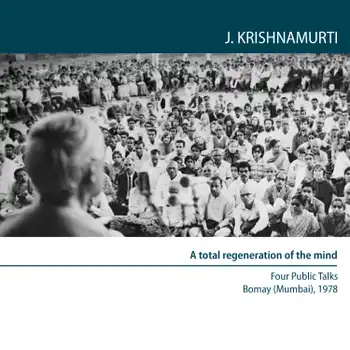1. To perceive 'what is' is the basis of truth - 7February 1971 Duration: 86 minutes • Where there is division there must be conflict. A mind in conflict must inevitably be distorted and therefore it cannot possibly see clearly what is truth. • We need a total change, a deep revolution, psychological revolution, the inward revolution, without which you cannot possibly create a new society. • Is it possible to observe, to perceive without the observer? • How are images formed? Can the image-building come to an end? • Knowledge is absolutely necessary. Is it possible that knowledge, which the brain has accumulated through centuries, does not interfere with relationship? 2. Direct perception is freedom - 10 February 1971 Duration: 80 minutes • Can the mind living in this world ever be free, not only superficially but profoundly, at the very root of its existence? • 'Freedom from' is an abstraction, but freedom in observing 'what is' and going beyond it is actual freedom. • How do I observe greed? Do I observe it as an outsider looking in or do I observe it without the observer? • Without the mind being free you cannot live in order. • Q: Three years have passed; I have no energy to be aware of my reactions. • Q: Can we seek God through observation? 3. Love is that quality of mind in which there is no division - 14 February 1971 Duration: 89 minutes • To live in this world with intelligence, in spite of all the complications. • Is it possible to be free of fear, not only the superficial fear in relationship but the deep-rooted fear? • Thought nourishes, sustains and gives continuity to fear and pleasure. • When you are learning, your mind is awake. • Truth isn't second-hand; you can't get it through a guru, a book, you have to learn about it. The beauty of learning is that you don't know what truth is. • What is love? • A man who has not love in his heart, but the things made by thought, will make a monstrous world, will construct a society that is totally immoral. To find out, you must undo everything that you have done. • What does it mean to die? 4. A mind in meditation is concerned only with meditation, not with the meditator - 17February 1971 Duration: 87 minutes • If you can put aside your favourite systems, if you can understand that concentration is merely a resistance and therefore constant conflict and wastage of energy, then we can find out for ourselves what is necessary for a mind that is in a state of meditation. • To learn about oneself, a living thing, you have to watch, learn anew each minute. • What is will? • Consciousness is heritage, the result of time. Consciousness is the content of itself, which is time, sorrow, confusion, misery. Intelligence has no heritage. • What is a mind that is completely silent? • Q: How does one cope with the extraordinary energy that human beings have?
To learn about oneself one has to learn anew each minute : Four Public Talks, Bombay (Mumbai), India, 1971
Commencez ce livre dès aujourd’hui pour 0 €
- Accédez à tous les livres de l'app pendant la période d'essai
- Sans engagement, annulez à tout moment
Auteur(e) :
Narration :
Langue :
anglais
Format :
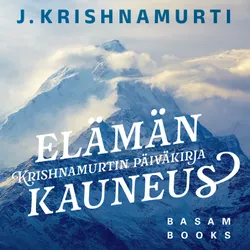
Elämän kauneus : Päiväkirjat 1973-1981
Jiddu Krishnamurti
audiobook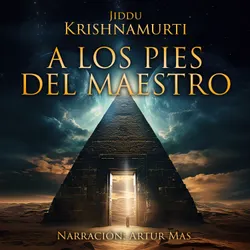
A los Pies del Maestro
Jiddu Krishnamurti
audiobookbook
Pourquoi avons-nous peur ?
Jiddu Krishnamurti
audiobook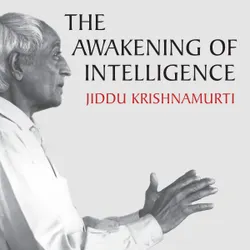
The Awakening of Intelligence
Jiddu Krishnamurti
audiobook
Qué es la meditación
Jiddu Krishnamurti
book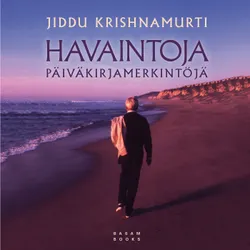
Havaintoja : Päiväkirjamerkintöjä
Jiddu Krishnamurti
audiobook
Un esprit calme et silencieux : Vivre, apprendre & méditer
Jiddu Krishnamurti
audiobook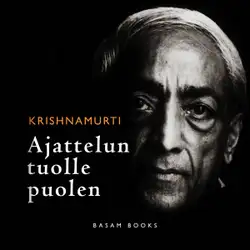
Ajattelun tuolle puolen
Jiddu Krishnamurti
audiobook
La revolución interior : Transformar el mundo
Jiddu Krishnamurti
book
Qué estás buscando
Jiddu Krishnamurti
book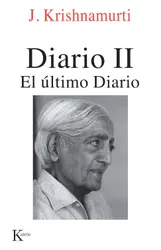
Diario II : El último Diario
Jiddu Krishnamurti
book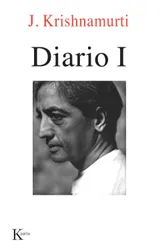
Diario I
Jiddu Krishnamurti
book
